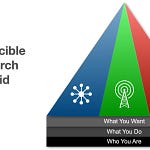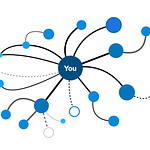
“I can’t stop my mind from racing. A million thoughts run through my head when I try to go to bed. I think of all the tasks I need to complete and all the problems I want to solve. I worry about the people I love and, before I know it, it’s 2 AM and I’m still wide awake.”
— Anonymous friend
If that sounds like you, you know you can’t keep burning the candle at both ends for too long. Lack of sleep is so crushing. You can’t think straight at work, you drowse off during your commute, and your health suffers.
Now that many of us are working from home, you may have heard of people who need a specific ritual that signals it’s time to “go to work.” They may only have to walk a few steps to their home office or workspace, but they need that psychological boundary and mental shift to switch modes from life to work.
Here are a few rituals that I’ve read about:
One person wraps up their morning rituals and fills their special “work mug” with coffee. That’s the cue that it’s time to “go to work.”
Another person showers, gets dressed for work, finishes breakfast, walks out the front door of their home, and re-enters through a different entrance to step into their home office.
A friend of mine built a home office shed in the backyard so they can literally separate work from their personal life in their home.
Believe it or not, another person gets in their car, drives around the block, and returns home to start the workday.
Yes, morning rituals are essential, and many of us rely on them to start our day and go to work. But, we kind of drop the ball on the other end of the work-life equation. We don’t create or follow a consistent evening ritual. Instead, we let our work bleed into our nights, and then we wonder why we can’t sleep and our mornings become so unpleasant.
The Problem
Since the release of the first iPhone almost 15 years ago, too many of us have gotten into a bad habit of endlessly scrolling our email, messages, socials, etc., in bed. How many of us? 90% of Americans have reported using a technological device in the hour before bed.
My friends, this does not make for an evening of restful slumber. It also sets us up for a rough start the next day.
Why is it so bad? For one thing, our devices emit “blue light,” which suppresses our body’s release of melatonin (a hormone that makes us feel drowsy). Blue light may be helpful during the day, but it becomes a problem at night when we’re trying to fall asleep.
Also, when we keep reading work emails and messages, we stress about things that we can’t deal with right now. I’ve learned this, and I think you know it, too: You could literally work 24x7 and never be “caught up.”
When we keep scrolling on Twitter, Facebook, and the news, it gives us incredible anxiety about world events that are out of our control. For example, I was up late the other evening and read the breaking news about a mass shooting in Sacramento, California. It was a tragedy, but there was absolutely nothing I could do about it that night.
Finally, when we try to work right up to the last minute before falling asleep, it doesn’t provide closure to our day. We don’t give ourselves enough time to wrap things up, decompress a little, and shift our minds into relaxation mode. And, you do need time for rest and relaxation to be your most creative, productive, and balanced.
Cal Newport talks about the need for a “shutdown ritual” at the end of the day, so you don’t leave your mind spinning with that feeling of unfinished work.
“…this ritual should ensure that every incomplete task, goal, or project has been reviewed and that for each you have confirmed that either (1) you have a plan you trust for its completion, or (2) it’s captured in a place where it will be revisited when the time is right.”
I know that I need this, too. I get stressed when I feel like I’m going to forget to add a new task to my calendar, lose an important idea overnight while I sleep, or not be prepared for a meeting in the morning. So, a few years ago, I created the evening ritual that I described below as a way to close out my day, calm my mind, and sleep better.
Create a new evening ritual
Basically, these evening habits of working too late and staring at your phone aren’t doing you any favors. So, I want to share an evening routine that may help you make the most of every day and start your next morning with clarity. It also will help you sleep better every evening.
Reflect
Plan
Anticipate
Communicate
Read
1. Reflect
You probably already know I’m a fan of morning journaling. I harness my creativity before the tasks of the workday strip it away. I sometimes sketch to let my artistic side run wild for a few minutes before I start working.
I like to capture random thoughts and feelings. But, I also write down ideas for my business, new articles, and ways to help my clients. It helps me focus my day as I jot down my goals and what I want to accomplish.
However, my evening reflections are a bit different. I find that I’m less creative at the end of the day. I’m a little tired, I’ve been focused on work all day, and my mind feels a bit drained.
So, instead of trying to come up with wild new ideas, I reflect on my day. You can think of this as a mini version of a post-mortem exercise that you might use for one of your work projects.
Thinking back on your day helps you evaluate things and make small improvements going forward. If you wait days, weeks, or months to reflect on how things are going at work — or in your life — the details become fuzzy, and it’s not as effective.
Here are some sample questions to ask yourself. Use a paper notebook to write your answers to avoid that blue light problem. This exercise doesn’t have to take a lot of time. I know you have a busy life, so try doing it for about 15 minutes.
What went well today? Why do you think it went well?
What did you enjoy doing and why?
What didn’t go well? What went wrong and why?
How could you be more effective and successful next time?
What did you learn today?
Did you accomplish everything you wanted? If not, why?
What do you want to do differently tomorrow?
As you do this for a few weeks, you will probably discover that the act of writing is also cathartic. Research has found that writing can help you process traumatic, stressful, or emotional events, which improves your physical and psychological well-being.
2. Plan
I’m sure you’ve experienced that feeling of a million ideas, issues, and problems swirling around in your brain. I know many people who have trouble falling asleep at night because their mind is racing.
The simple act of capturing those thoughts in a paper notebook helps me fall asleep more quickly in the evening. I keep a small one on my nightstand for this purpose. When I have a creative idea or a thought about how to solve a problem, I scribble it in that notebook before my head hits the pillow.
I know that I can’t make more progress or solve problems at bedtime. I know that I need to sleep. But, I can’t relax until I write down those issues to remember to deal with them in the morning.
So, before you crawl into bed, plan your next day. What is the most important thing you want to accomplish? Put it at the top of the list.
Sure, you can have other tasks and appointments. But, if you complete that one critical task tomorrow, you’ll feel accomplished. If you finish even more items on your list, you’ll feel like a productivity machine.
3. Anticipate
Anticipate the activities of the next day. I always want to ensure that I haven’t overlooked an early morning meeting. I also want a sense of what tomorrow will be like and how I’ll weave my other tasks and activities around the scheduled discussions (e.g., time for exercise).
Scan your calendar to ensure you feel ready for the day. You can even engage in a quick visualization exercise and picture yourself accomplishing various tasks (e.g., presenting to your boss). Block off time (i.e., private appointments with yourself) if you know you’ll need some time to prepare before some of your meetings.
When you have a sense of who you’ll be meeting and what you’ll be doing, your unconscious mind can prepare. It’s kind of surprising, but I’ve found that priming myself for tomorrow’s events must somehow allow my brain to process things while I’m sleeping.
I often wake up and immediately have a creative solution to a problem I thought about the night before. That’s why I love to grab my journal first thing in the morning to capture those ideas before getting distracted.
4. Communicate
Communicate with your future self. Think of this as a low-budget “time machine” that lets you send a message to the “you” of tomorrow morning. What do you want to share with yourself?
Capture where your thoughts are at the end of the day to enable a successful handoff to yourself tomorrow. It will help you pick up where you stopped instead of saying, “What in the heck was I thinking here?”
I do this when I’m writing articles, stories, and my book. I’ll quickly scribble a few bullet points that capture the essence of what I’m thinking and how I’ll take those ideas and jump back into writing the next day.
I can’t think of the author’s name right now, but they had an interesting strategy for avoiding writer’s block. Even when they knew exactly how they wanted to end the chapter they were currently writing, they wouldn’t finish it if the day was almost over. Instead, they’d write a few notes about what they had in mind and go to bed.
The next morning, they didn’t have to waste any time thinking about what to write or how to get started. They knew exactly what they had envisioned and how they would end the chapter they were in the middle of writing the previous day. They could dive right into things.
So, you can do the same thing with your work. Leave things in a good state the night before, with you knowing exactly what you want to do next. Make a few notes to communicate that vision to your future self, go to sleep, and attack it again when you’re fresh in the morning.
5. Read
Finally, instead of staring at your phone in bed or looking at a TV screen, open a good book. We all know that we should probably be reading more, but we struggle to find time to do it.
I was a voracious reader when I was younger. I would finish numerous books every week. Sometimes, I would read a book a day.
But, as I grew older, life got in the way of my reading hobby. I was so busy with textbooks during college and graduate school that I didn’t have time to read for pleasure. Later, when I was in the middle of my career, I felt like I should only be reading books on professional development, leadership, and business.
Only in the last few years have I started reading for pleasure again. For example, I no longer feel guilty about reading fiction for fun.
Whatever it is that you prefer and works for you (e.g., fiction, nonfiction, humor, biographies, mysteries), try reading to calm your mind as a bedtime ritual. As much as we love Netflix and scrolling social media on our phones, those activities aren’t conducive to a good night’s sleep.
My wife and I got into a bad habit of watching a show on Netflix every evening in bed. It felt like a comforting ritual, but we noticed that we weren’t sleeping very well. We’d wake up several times during the night. Sometimes we’d wake up early (e.g., 4-5 AM) and couldn’t fall back asleep.
For the past few weeks, we’ve set Netflix aside in favor of reading in bed for 30-60 minutes. I’ve noticed that I get much sleepier and have no problem dropping off quickly into slumberland.
Test this ritual with yourself
I know. It can feel rigid to create bedtime rituals, morning rituals, work rituals, etc. It’s fun to be spontaneous, wild, and free!
Some of us are creatures of habit and find it centering and calming to create and follow rituals (Hi there!). I’ve always enjoyed personal optimization and experimenting with ways to be more effective, productive, and healthier. But, some folks find it challenging to create new habits and stifling to follow them.
However, if you’re discovering that being wild and free is messing with your productivity, sleep, and health, it might be time to test a better routine.
For the next few weeks, try these five activities of reflecting, planning, anticipating, communicating, and reading. You won’t see the benefits right away in a day or two, so give it some time and give it a chance. Let me know if this evening ritual helps you! Feel free to share other strategies you’ve used to wrap up your day in a positive way.
Would you be willing to tell your friends about me?
By the way, there is a great way you can support my work without spending any money on a premium subscription:
📣 Recommending my newsletter on social media! 📣
It only takes a few seconds, and it helps grow my business so I can continue making time to write it.
I’ll even provide some copy and paste text to make it easy to share on Twitter, Reddit, LinkedIn, Facebook, etc. Thanks in advance!
I've really been enjoying the Invincible Career newsletter by Larry Cornett (@cornett). If you want to get ahead at work and be happier in your job, but you aren’t subscribed yet, you’re missing out.
https://newsletter.invinciblecareer.com
Larry Cornett is a leadership coach and business advisor who hosts a private mastermind community for ambitious professionals with weekly challenges, office hours, and confidential support. If you’re interested in starting your own business or side hustle someday (or accelerating an existing one), check out his “Employee to Solopreneur” course (launching later this year).
Larry lives in Northern California near Lake Tahoe with his wife and children, and a gigantic Great Dane. He does his best to share advice to help others take complete control of their work and life. He’s also on Twitter @cornett.














5 Things You Should Do Every Night (Issue #369)